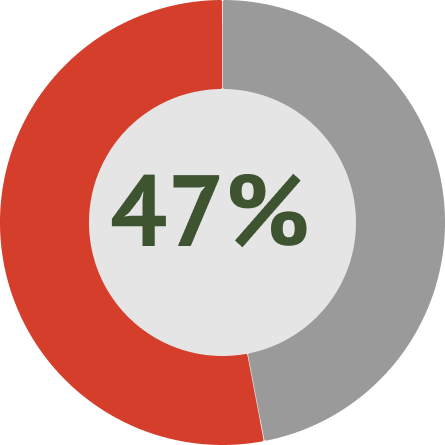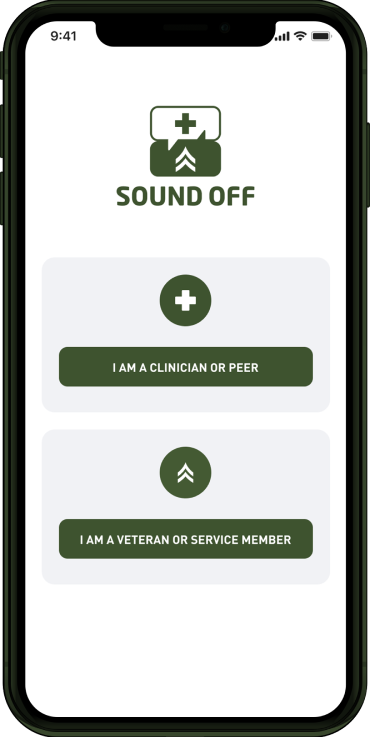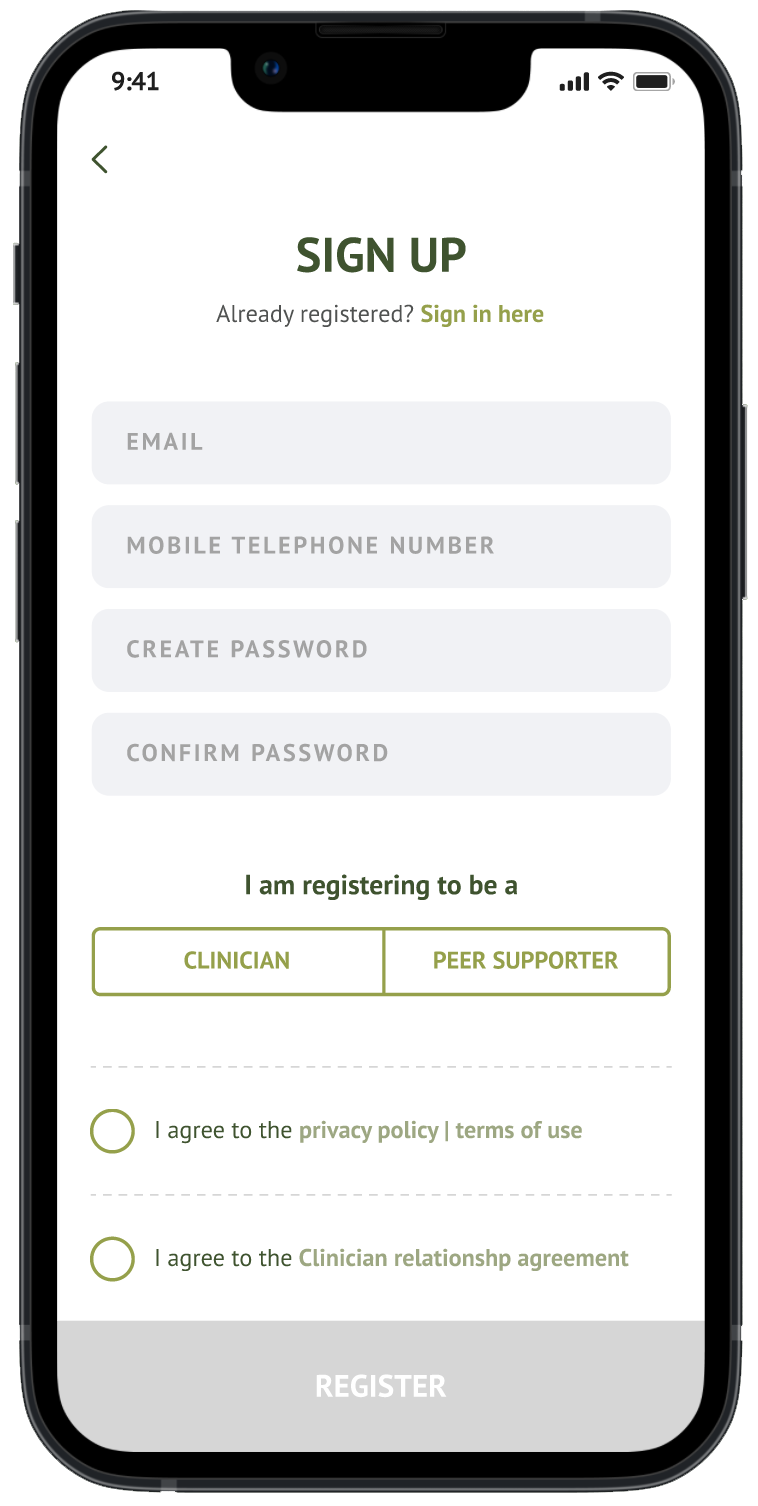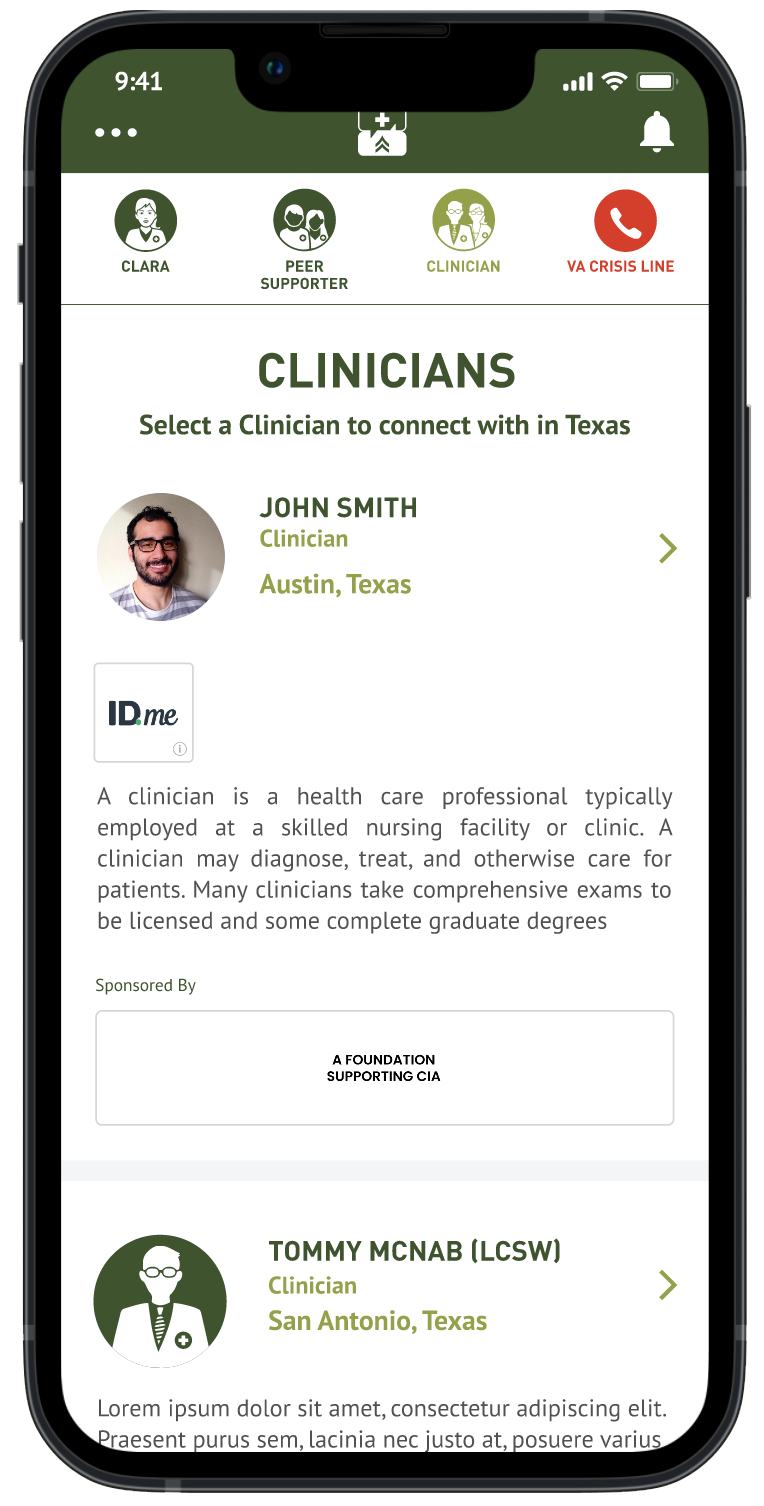LEARN MORE ABOUT GIVING HELP
Providing your time as a clinician is a meaningful way to give back to those who have served our country.

Unfortunately, 47% percent of those who show signs of PTSD and depression
By volunteering as a clinician, you can make a difference.
By volunteering as a clinician, you can make a difference.
Sound Off provides a platform where military members who would otherwise avoid mental health support can engage anonymously.
From the perspective of the person seeking help, their interaction is completely contained within a mobile phone application. There is no waiting room, hotline to call, confirmation of status, or computer registration. Sound Off asks for one detail, the user’s state, while allowing for frequent, personal contact similar to any traditional telemedicine session. There has never been a mental health delivery model that allowed both repeat contact (essential for treatment) and anonymity.
Become a part of the solution. Sign Up Today.
As a clinician, you choose how often and how many members you support.
What Your Commitment Is:
- Pledge to support at least one Veteran or Service Member through Sound Off with a frequency consistent to your in-person patients.
- Be responsive to Sound Off staff when they reach out.
- Reply to Veterans or Service Members within 24 hours after they connect with you to set up your first appointment.
- Sound Off is predicated on the anonymity of those seeking help. While it is natural that you will come to learn about the person you are supporting as you develop a relationship, we ask that you not break the model by immediately asking for personally identifying information.
- Maintain your license and associated licensing requirements
How Does It Work?
Is This Paid or Volunteer?
Many of our users come from communities that do not have dedicated financial support for clinical support or are uncomfortable providing their demographics. We rely on volunteer clinical support to serve these individuals. It’s an incredibly essential and meaningful way to give back to those who served.
You can also elect to be classified as both a compensated and a volunteer clinician. This means that if you are selected by a user with financial support available, you will be treated as a compensated clinician and be paid accordingly. If you are paired with a user that does not have financial support available, you will volunteer your time for that session.
As Sound Off continues to work to secure additional funding for all military groups, volunteer clinicians are the only way we can provide help to users who do not feel comfortable asking for help anywhere else. If funding is available to support a new relationship, you will be compensated – regardless of your choice to support ProBono.
Interested in signing up?
MAKE A DIFFERENCE - REGISTER TO GIVE HELP
FAQ
Am I expected to “stand watch” - is this 24x7?
No! Sound Off is a not a crisis line. While the app provides access to the VA crisis line, we are not providing crisis care. The app will alert you when you’ve been paired with a user. We do expect that you respond within 24 hours to set up an appointment.
How often am I expected to meet with users?
We ask that you meet with a user for follow up as clinically indicated or appropriate and in a manner consistent with your traditional practice.
How are users paired with me?
On the back end of the application, only clinicians who have marked themselves as “available” and are licensed within the user’s state. Users are then able to view all the clinicians profiles who fit those parameters and then select the clinician that they feel is the best match.
Will the app notify me when I’m paired to an user?
Yes! You will hear an “alarm” when you are paired to an user as well as receive an in-app message.
What do I do if the user wants to transition to a traditional client within my practice?
If the Veteran, Service Member, or Intelligence Officer expresses interest, yes, you are allowed to transition them to your traditional face-to-face platform. However, we ask that you forthrightly discuss the cost beforehand (with an inclination towards low-cost appointments). “When and if it’s either your recommendation or the user’s wishes, you are encouraged to transition the user to available traditional clinical support. That might be to the nearest VA or clinician in the local area. If the user is active duty the ideal option is to their nearest military behavioral health provider.
Will the users have my personal information?
The users can see your profile and whatever you choose to share in that section. The app makes it very clear what is public and what is private. Your cell phone number, your email address, and any other information is not disclosed to the user.
How many users will I work with?
This is completely up to you. After you are paired with an user, the app will automatically mark you as “unavailable”, meaning that you won’t be visible to new users. If you’d like to work with multiple users, at any time you are welcome (and encouraged) to change your status to available so that users have the opportunity to pair with you.)
Do you provide insurance?
Sound Off will at all times maintain an E&O liability insurance policy with aggregate $5 million coverage, and Sound Off will provide coverage to affiliated Clinicians and Peer Supporters of the Sponsoring Organization as additional insureds. This insurance is secondary to any insurance the Clinician maintains him/herself.
How quickly do I need to respond?
We ask that you send a message to the user within 24 hours of being paired with them.
Do I have to maintain notes?
You are welcome to maintain notes but Sound Off does not require it nor does the platform have a place to keep them.
If I'm still under supervision, can I serve as a clinician on Sound Off?
Yes, those who have an associated licenses can serve as probono clinicians on the Sound Off platform as long as their supervising clinician agrees to the Sound Off policies. Please contact info@sound-off.com in order to follow this alternate process.
5 Tanielian, T., Jaycox, L, Schell, T., Marchall, G., Burnam, M., Eibner, C.,… Vaiana, M. (2008). Invisible Wounds of War: Psychological and Cognitive Injuries, Their Consequences, and Services to Assist Recovery. RAND Center for Military Health Policy Research. doi: 10.7249/mg720.116 Department of Veterans Affairs, Veterans Health Administration. 2018. “VA National Suicide Data Report 2005 – 2016.”




